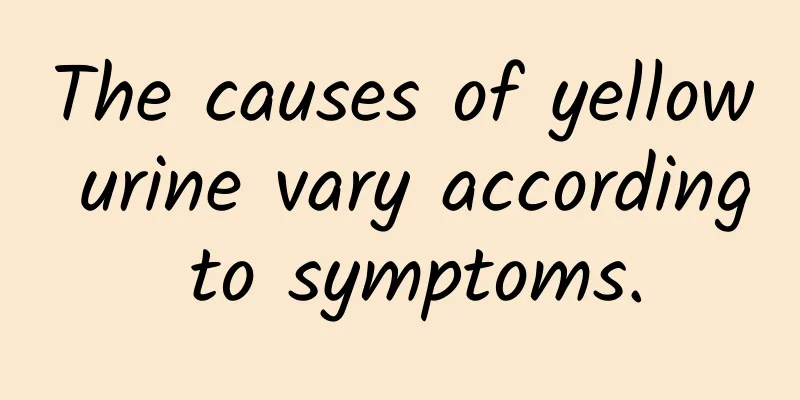What are the dangers of intravenous injection for children?

|
Giving an intravenous injection is also called hanging water or infusion, and in some places it is also called drip. When children catch a cold, many parents will take them to get an IV drip, which is expected to be effective faster. However, few parents know that this treatment method is quite harmful to children. In foreign countries, an IV drip is equivalent to a minor surgery, which will lead to a decrease in children's immunity and cause drug resistance problems. Therefore, if the situation is not particularly serious, it is best not to get an IV drip. What are the dangers of intravenous injection for children? 1. Increase the burden on the lungs The narrowest capillaries in the human body do not exceed 10 micrometers. Once the particles of the infused drugs are too large, they will cause blockage in the blood vessels. After the drugs enter the blood, particles with a diameter larger than the narrowest part of the capillaries will be filtered out by the lungs and remain in the lungs, causing lung fibrosis and reduced breathing capacity, which may also affect the oxygen supply throughout the body. 2. Drug resistance Frequent infusions may also lead to an "infusion disease". Compared with oral medications, infusions have a higher probability of allergic reactions and are more likely to produce drug resistance, leading to the same disease in the future. If you do not have an infusion, it will be difficult to cure. 3. Adverse reactions occur quickly All medicines have certain side effects. Oral tablets, capsules and other drugs enter the blood through the digestive system. This process is relatively slow and the adverse reactions caused are relatively mild. Some impurities that may cause adverse reactions are broken down or filtered out in the digestive tract. When administered intravenously, the drug enters the blood circulation directly and "quickly and violently" causes adverse reactions such as fever, dermatitis, and rash. In severe cases, it can even lead to shock or death. Infusion is only needed in more serious and urgent situations:
1. Severe bacterial infections: such as purulent tonsillitis, otitis media, pneumonia, meningitis, scarlet fever, appendicitis, etc. 2. Severe dehydration: For example, a child has gastrointestinal discomfort, severe diarrhea and vomiting, and cannot eat. In order to avoid severe dehydration, intravenous infusion is required. 3. Asthma attack: The baby's asthma attack is relatively urgent. If medication is not taken in time, there is a risk of suffocation. At this time, you may need to immediately inject some anti-asthmatic drugs into the body. 4. More urgent diseases: such as laryngitis. Laryngitis develops rapidly and requires the delivery of some antibiotics or hormone drugs into the body as soon as possible to avoid worsening of the situation. 5. More serious skin allergies: More serious skin allergies will make the patient feel itchy all over the body and very uncomfortable. At this time, he needs infusion to help him relieve the symptoms immediately. |
<<: What medicine should children take for heat stroke and fever
>>: What should I do if my child has a fever of 39.5 degrees?
Recommend
What should I do if my fever is caused by internal heat?
The most common cause of fever is a cold. However...
Symptoms of male sexual dysfunction
As a man, the thing he fears most is hearing othe...
Why do you often feel dizzy? Beware of cervical spondylosis
The main symptom of dizziness is obvious in the h...
Why does conjunctivitis recur?
Conjunctivitis is a very common disease in daily ...
Can I eat oranges if I have a stomach ulcer? Can I eat yellow fruits?
Nowadays, most people have some stomach problems,...
Is it useful to apply Chinese medicine belly button patch to lose weight?
There are many acupoints in the human body, and e...
Red and itchy skin
Redness and itching of the skin is a very common ...
The efficacy and use of the traditional Chinese medicine Rhodiola rosea
Rhodiola rosea is a very valuable Chinese herbal ...
Symptoms of liver problems
If the liver is not in good condition, it can act...
Interpreting the causes of dermatomyositis from the perspective of traditional Chinese medicine
Many diseases are completely different when viewe...
Why do I faint after drinking and urinating?
Fainting while urinating after drinking is an imp...
Where does labor pain hurt?
After a long period of pregnancy, pregnant women ...
What does diplopia mean?
Diplopia means that when the two eyes look at an ...
A chill in the chest
In winter, many of our friends now wear very litt...
What to do if dizziness and vomiting are caused by the cervical spine? Chinese medicine recommends massage methods
Cervical spondylosis is a very common disease in ...









